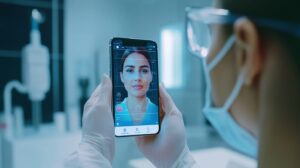
The Hidden Power of AI: How It's Quietly Changing Who Gets Hired
An interview with Matthew Spencer, CEO and Co-founder at Suited
Q: Can you tell us about Suited? What services do you offer, and who are your typical clients?
Suited is an AI-powered recruiting platform designed to help firms make better, more equitable hiring decisions. We focus on industries like law and investment banking, where the costs of a bad hire can be enormous and where a premium is placed on finding individuals who will succeed over the long run.
Our services include industrial-organizational psychology-based assessments that expand candidate evaluations beyond just the resume, ensuring a more holistic view of their potential. We leverage machine learning technology to provide more accurate interpretations of the assessment data and empower recruiting teams to make faster and better-informed hiring decisions.
We combine these tools in industry-specific ecosystems that drive substantial network effects and create significant efficiencies for hiring firms and candidates. Our typical clients are top-tier professional services firms that want to hire more high performers, reduce costly hiring mistakes, and expand representation.
Q: Finding the right talent is a major challenge for many firms. How is AI improving the recruitment process?
AI is transforming recruitment by providing deeper insights into candidates' abilities and potential, far beyond what traditional methods can offer. At Suited, we use AI to analyze behavioral traits and characteristics, ensuring that hiring decisions are based on a comprehensive understanding of a candidate’s fit for the role and the firm’s culture.
The efficiencies that AI provides also enable firms to consider significantly more candidates, allowing them to be more inclusive and recognize that top talent can come from many different backgrounds. And, unlike human decision-making, AI can be tested for bias before being deployed in the hiring process. This is a critical step for firms considering AI tools in recruiting functions.
When AI models are trained on incumbent data or historical decisions, they have the potential to unintentionally perpetuate preexisting biases. Developers of AI-based recruiting tools must regularly test models during the development process and throughout their lifecycle of use. Each model we develop for our clients is also third-party audited for adverse impact to ensure they meet all applicable regulatory standards.
Q: How does using AI change the candidate's hiring experience? What should candidates do differently now compared to when AI wasn't involved?
AI makes the process for candidates more objective and merit-based, rather than relying on a small number of arbitrary criteria and the subjective views of interviewers. Candidates are evaluated on their skills and potential rather than just their backgrounds and pedigree.
We do not believe that AI should replace human-led decision-making; instead, it should be used to complement the process and help make it better. Candidates should expect assessments to be a part of more recruiting processes going forward, as they help provide standardized data that can be ingested by AI models to help drive more objective and accurate conclusions.
The end result is that more candidates will be considered for the role, potentially helping those who may have historically been overlooked to have a better chance of competing for roles.
Q: Do you think AI will alter the legal profession? Law has traditionally been one of the more lucrative fields. Will it continue to be, or will AI reduce the value of legal services?
AI is undoubtedly set to transform the legal profession, but rather than diminishing the value of legal services, it will empower legal practitioners to elevate the level of service they can provide.
AI will streamline routine tasks such as document review, contract analysis, early drafting, and legal research, allowing lawyers to focus on more strategic and complex aspects of their work. This not only enhances the accuracy and efficiency of legal services but also enables faster delivery of results to clients.
Moreover, AI can help legal professionals uncover insights from vast amounts of data that would be impossible to analyze manually. By leveraging AI, lawyers can provide more informed advice, anticipate legal trends, and offer proactive solutions to clients. As a result, the value of legal services will shift from performing basic tasks to offering high-level advisory services and strategic guidance.
While the nature of legal work will evolve, the profession will continue to be lucrative, with AI serving as a powerful tool to enhance the quality and speed of legal services, ultimately benefiting both practitioners and clients.
Q: What advice would you give to early-career professionals navigating the current changes and uncertainties in the workplace?
In today’s rapidly changing workplace, early-career professionals should embrace continuous learning and adaptability. The ability to navigate new technologies, such as AI, and to develop soft skills like critical and strategic thinking and emotional intelligence will be crucial. This will especially be true in the professional services industries.
AI will create more of a level setting of the technical skills employed by professionals in these industries; however, those individuals who are able to build trust and develop deep relationships with clients will be poised for long-term success.
As such, early-career professionals should seek out mentors and build a strong professional network to develop these skills. Stay open to new opportunities, and don’t be afraid to step outside your comfort zone. These strategies will help you thrive amid uncertainty and build a successful career in any industry, especially in professional services roles.









